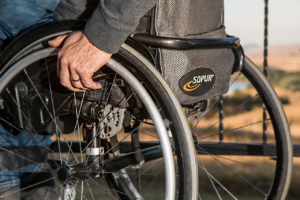
Experiencing a traumatic event can leave profound and lasting impacts on an individual’s life. These experiences, whether from a personal tragedy, natural disaster, or violent incident, can lead to emotional, physical, and psychological distress that extends far beyond the event. It’s crucial to understand that coping with trauma is not an overnight process; it takes time, patience, and resilience. This article offers six helpful tips to navigate the aftermath of a traumatic event, aimed at providing guidance and support during the challenging journey towards healing and recovery.
1. Reach Out for Professional Help
In today’s society, mental health awareness is growing. Seeking medical help for psychological issues is crucial for a healthy, fulfilling life. If you’re feeling overwhelmed, depressed, or anxious, contact a professional therapist. They provide a safe space to express your feelings, fears, and thoughts without judgment, guiding your healing journey.
They can also equip you with strategies and coping mechanisms appropriate for your situation. If you’re based in Colorado, finding a therapist near me in Denver could be viable. A simple online search can help you find a therapist who specializes in trauma and is conveniently located near you, making it easier for you to attend sessions regularly.
2. Acknowledge Your Feelings
In our fast-paced world, there’s never a good time to slow down and truly acknowledge our emotions. However, refusing to process our feelings can lead to bottled-up emotions and a mental and emotional burden that grows heavier over time. That’s why giving yourself the time and space to feel your feelings is essential.
Journal, meditate or confide in a trusted friend or therapist. Giving yourself space to process and work through emotions is essential, rather than suppressing them. True healing and growth happen when we honor our feelings and allow ourselves to move through them.
3. Stay Connected With Loved Ones
Having a strong support system is vital when recovering from a traumatic event. Staying connected with your loved ones – family members, friends, or even supportive colleagues – can provide emotional solace and help alleviate feelings of isolation often associated with trauma. These individuals can lend a sympathetic ear, encourage, or be there to provide silent companionship.

It’s essential to remember that you don’t have to go through your healing process alone. Lean on your support system, share your feelings and thoughts, ask for help when needed, and let them share in your journey. This connection can serve as a powerful reminder that despite the hardships, you’re not alone, and some people genuinely care about your well-being.
4. Take Care of Your Physical Health
Maintaining physical health after a traumatic event is crucial for mental well-being. Regular exercise keeps the body fit and releases endorphins, known as “feel-good hormones,” which alleviate stress, anxiety, and depression. A balanced diet with fruits, vegetables, lean proteins, and whole grains promotes energy and brain function.
Sleeping is crucial for the body’s rest and recovery, promoting physical and emotional healing. While alcohol and other substances may offer temporary relief, they can worsen anxiety and depression, hindering healing. Prioritize healthy habits to nurture your body and recognize the vital connection between physical health and mental well-being during trauma recovery.
5. Practice Mindfulness and Relaxation Techniques
Trauma can cause fear, anxiety, and distress. Mindfulness practices like meditation, deep breathing, and yoga can help manage these overwhelming emotions. Being present in the moment, focusing on your breath or body’s sensations, promotes calmness and relaxation. These techniques regulate emotions, reduce stress, and improve mental health.
Consider finding a local meditation or yoga class in your area, or try guided meditation apps that you can access from your home. Incorporating these practices into your daily routine can help cultivate inner peace and resilience, allowing you to better cope with any ongoing trauma symptoms.
6. Participate in Meaningful Activities
As you navigate the healing process, engaging in activities that bring joy and fulfillment is essential. Participating in hobbies, volunteering, or spending time in nature can provide a sense of purpose and meaning, especially during difficult times. These activities also serve as healthy distractions from any negative thoughts or emotions that may arise.
Furthermore, setting achievable goals for yourself can help boost self-confidence and a sense of accomplishment, which are crucial in building resilience. Remember to be patient with yourself and celebrate small victories as you continue healing.
Recovering from trauma is a unique and personal process, but it’s essential to remember that help is available. Seeking professional support, acknowledging your feelings, staying connected with loved ones, taking care of your physical health, practicing mindfulness and relaxation techniques, and engaging in meaningful activities can all contribute to a strong foundation for healing and growth. Remember to be gentle with yourself and trust that with time, patience, and support, you can overcome the effects of trauma and lead a fulfilling life.




